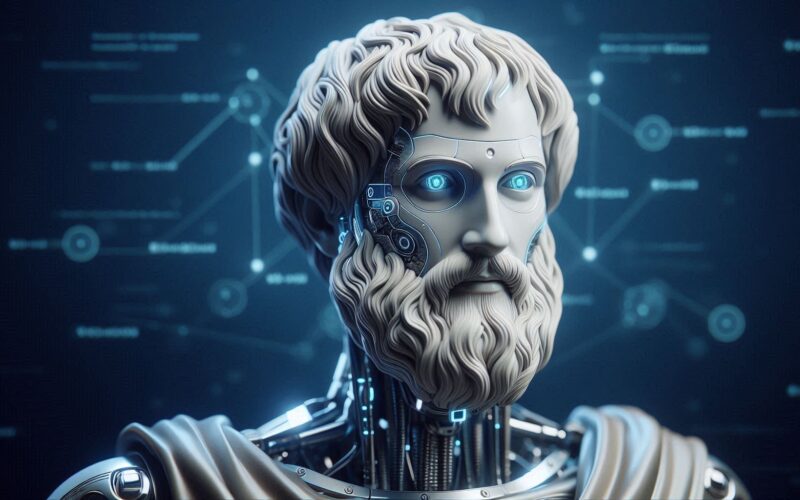Harmonic, an artificial intelligence startup that’s pursuing the goal of mathematical superintelligence, or MSI, said today it has closed on a $75 million early-stage funding round.
Today’s Series A round was led by Sequoia Capital and saw participation from Index Ventures, Jasper Lau’s Era Funds, GreatPoint Ventures, DTS Global Partners, Palo Alto Networks Inc. Chief Executive Nikesh Arora and actor Jared Leto, bringing the company’s valuation to $325 million.
The startup says its main goal is to achieve MSI by building the first AI system with mathematical capabilities that are superior to humans, as a way of overcoming traditional limitations around “hallucinations,” which is when AI models fabricate responses to questions they cannot answer correctly.
In a blog post, Harmonic explains MSI is key to enabling logical reasoning, which can help ensure that AI model’s responses are always correct and truthful. It added that AI systems must have “powerful and verifiable reasoning capabilities.”
Since the language of reasoning is mathematics, and mathematics is the means through which humans have discovered numerous fundamental truths about the universe, it follows that an AI system with MSI should be able to greatly advance our knowledge and understanding in areas such as science and engineering, the company believes.
Existing large language models such as OpenAI’s GPT family fall short of human-level reasoning, which is why they often generate hallucinations when they get stuck on a question or prompt. Harmonic believes that hallucinations can be dangerous, as they can cause AI systems to behave in unpredictable ways. What’s more, the risk of hallucinations is growing as AI takes on a more important role in people’s lives.
Harmonic says if it can provide AI models with the ability to perform mathematical reasoning, it should be able to guarantee that their responses will always be correct, and therefore free of hallucinations. It contends that such models, with transparent and verifiable “reasoning traces,” will be “fundamentally safe,” unlike current models.
AI models with MSI will be immediately useful in a whole range of industries that cannot rely on AI today, the company claims, including aerospace, computer chip design, industrial systems and healthcare, where the reliability of software is paramount. In addition, MSI will help to push the boundaries of AI research itself, enabling the creation of more powerful systems that can even create their own, synthetic data to enhance their knowledge and learning.
Harmonic is led by its co-founder and CEO Tudor Achim, who said the AI community has come to realize that mathematics is the missing link required to build genuine superintelligence. “Harmonic is leading these developments while simultaneously solving limitations commonly found in other AI models,” he said.
The company has already made progress on the way to developing MSI with its first model, called Aristotle, after the Greek philosopher and mathematician. When prompted with natural language math problems, Aristotle has the ability to formalize those problems in Lean 4, a functional programming language based on calculus.
By doing so, it can solve the problems in a way that’s formally verifiable, so it can essentially double-check for itself that its answers are correct. It will then output its responses in both Lean 4 and natural language, ensuring that its reasoning can be verified.
Aristotle has already achieved an impressive score of 90% on the MiniF2F mathematics benchmark, which is designed to measure the core problem-solving skills of AI systems with formally specified problems drawn from national and international high-school math competitions, plus high school and undergraduate math classes. As a result, the MiniF2F benchmark can compare Aristotle’s performance with both humans and prior research.
The startup said the funds from today’s round will help it accelerate the development of Aristotle and create the first AI system with math skills that are superior to humans.
Sequoia’s partner Andrew Reed said he invested in Harmonic because he believes that AI can accelerate the mathematical capabilities of humans, paving the way for new AI applications. “Harmonic is pioneering MSI and assembling an incredible team of researchers, engineers and mathematicians who are working closely together on this important undertaking,” he said.
Image: SiliconANGLE/Microsoft Designer
Your vote of support is important to us and it helps us keep the content FREE.
One click below supports our mission to provide free, deep, and relevant content.
Join our community on YouTube
Join the community that includes more than 15,000 #CubeAlumni experts, including Amazon.com CEO Andy Jassy, Dell Technologies founder and CEO Michael Dell, Intel CEO Pat Gelsinger, and many more luminaries and experts.
THANK YOU
Source link
lol

